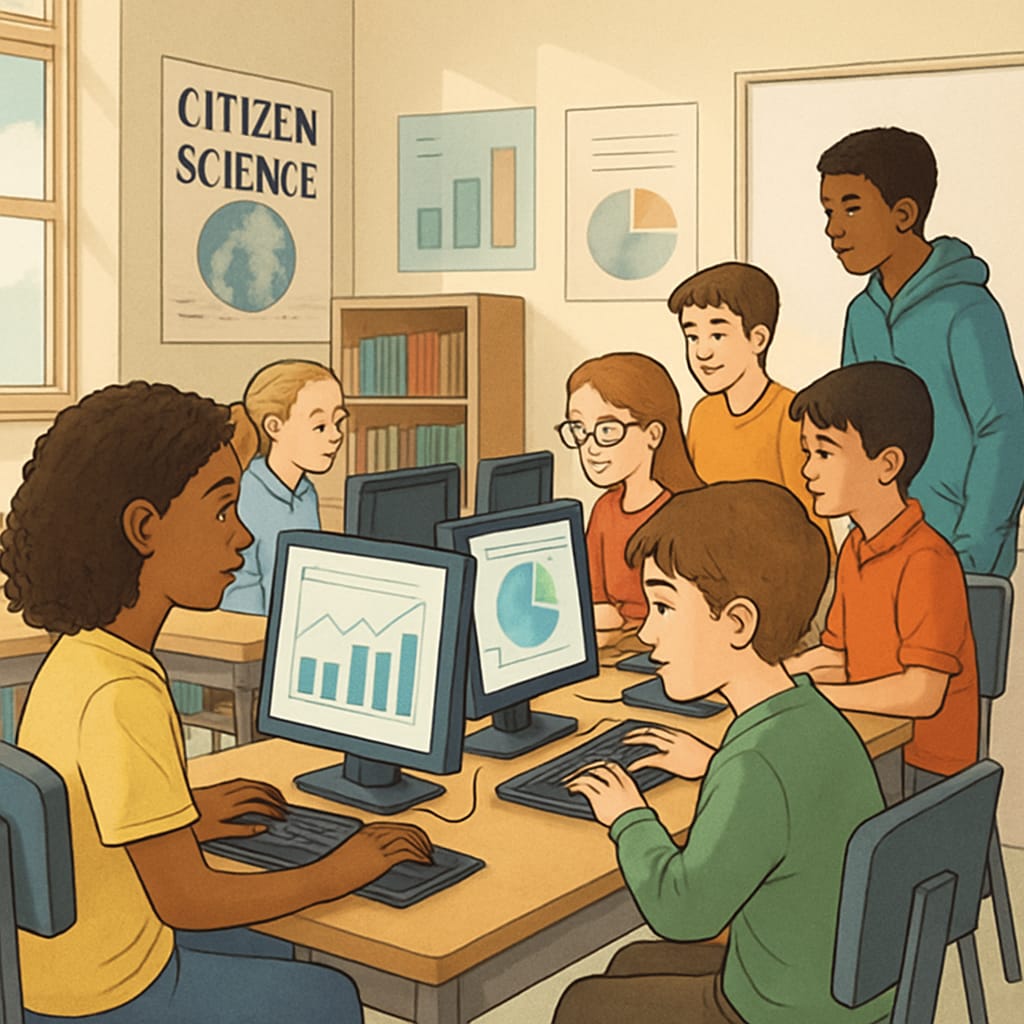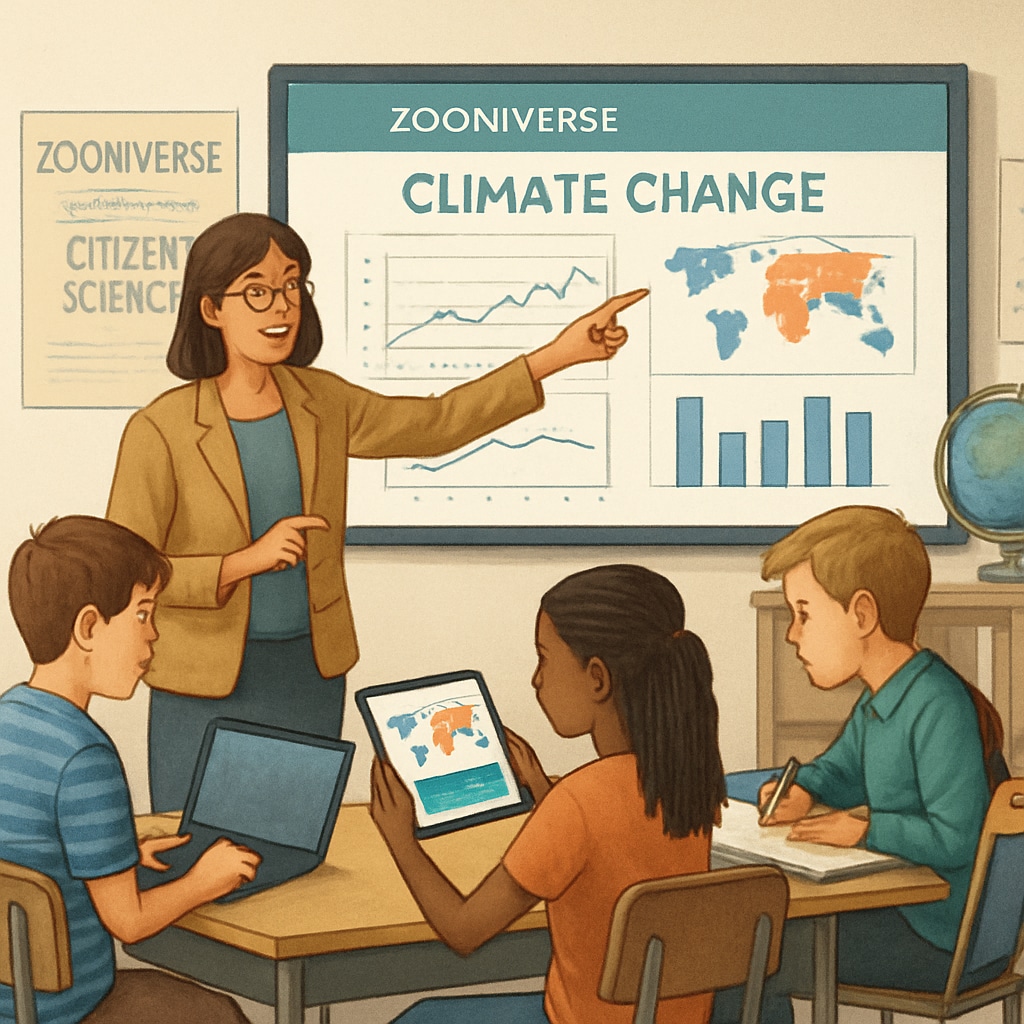Zooniverse, the world’s largest platform for citizen science, provides an extraordinary opportunity for K12 students to participate in real-world science projects. By engaging with Zooniverse, students can contribute to ongoing research, fostering critical thinking and scientific literacy. This participation bridges the gap between theoretical learning and hands-on exploration, nurturing the next generation of scientists and innovators.
What Is Zooniverse and Why Is It Important for K12 Education?
Zooniverse is a collaborative platform that connects professional researchers with volunteers from around the globe. It allows individuals, regardless of their background, to contribute to projects across disciplines such as astronomy, biology, history, and climate science. For K12 students, this means stepping into the role of real scientists, analyzing data, and drawing meaningful conclusions.
Incorporating Zooniverse into K12 education is transformative. Students not only learn about complex scientific concepts but also experience the process of contributing to global research efforts. This hands-on involvement demystifies science, making it approachable and exciting for young learners.

How Zooniverse Enhances Critical Thinking and Scientific Literacy
Engaging in citizen science challenges students to think critically and question the world around them. For example, Zooniverse projects often require participants to identify patterns, sort images, or classify data—skills that align with core scientific practices. These activities encourage analytical thinking and problem-solving, foundational skills for any career in STEM (science, technology, engineering, and mathematics).
Additionally, working on real-world problems teaches students about the scientific method, from hypothesis formation to data analysis. This experiential learning approach enhances their understanding of science while also cultivating curiosity and a sense of accomplishment.
Integrating Zooniverse Projects into K12 Curricula
Teachers can easily incorporate Zooniverse into their lessons to enrich classroom learning. Here are a few strategies:
- Supplementary Activities: Use Zooniverse projects to complement topics being studied, such as astronomy or wildlife conservation.
- Interdisciplinary Approach: Combine science with other subjects like math (data analysis) or history (archival research).
- Group Projects: Encourage collaborative learning by assigning group tasks within a single Zooniverse project.
- Independent Research: Allow students to explore projects that interest them, fostering self-directed learning.
Integrating Zooniverse into curricula not only enriches content but also aligns with national education standards emphasizing inquiry-based learning and critical thinking.

Success Stories: Inspiring the Next Generation of Scientists
Zooniverse has already inspired countless students to pursue scientific careers. For instance, a high school class in Chicago used Zooniverse’s “Galaxy Zoo” project to classify galaxies, sparking an interest in astrophysics among several students. Another example is a middle school science club that analyzed images of wildlife for a conservation project, leading to a deeper understanding of biodiversity.
These stories demonstrate Zooniverse’s potential to ignite passion and curiosity in young minds, proving that science is not confined to textbooks but is a dynamic and collaborative field.
The Future of Learning Through Citizen Science
As education evolves, platforms like Zooniverse will play an increasingly important role in bridging classroom learning with real-world applications. By involving K12 students in citizen science, educators can prepare them for a future that values critical thinking, collaboration, and innovation.
In conclusion, Zooniverse is more than just a platform; it’s a gateway to discovery. For K12 students, it offers a chance to step into the shoes of researchers, contributing to meaningful scientific projects while developing skills that will serve them for a lifetime. As a result, Zooniverse not only nurtures the scientists of tomorrow but also inspires a lifelong love for learning.
Readability guidance: This article uses short paragraphs, clear subheadings, and bullet points to enhance readability. Concepts are explained with simple language, and transitions such as “for example,” “in addition,” and “as a result” ensure smooth flow. The content is engaging and informative, ideal for both educators and students.


